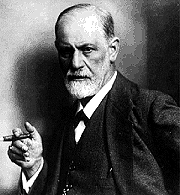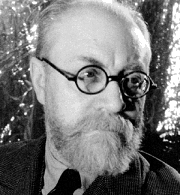1900 – 1909 World History
 Sigmund Freud (1856–1939) Leo Baeck Inst./Archive Photos  Henri Matisse (1869–1954) The Library of Congress Picture Collection  W.E.B. Du Bois (1868–1963) The Library of Congress Picture Collection |
- 1900
- Hurricane ravages Galveston, Tex.; 6,000–8,000 dead. Fauvist movement in painting begins, led by Henri Matisse. Sigmund Freud's The Interpretation of Dreams. Carrie Chapman Catt succeeds Susan B. Anthony as president of National Woman Suffrage Association.
- 1901
- Queen Victoria dies, and is succeeded by her son, Edward VII. As President McKinley begins second term, he is shot fatally by anarchist Leon Czolgosz. Theodore Roosevelt sworn in as successor.
- 1902
- Enrico Caruso's first gramophone recording. Aswan Dam completed.
- 1903
- Wright brothers, Orville and Wilbur, fly first powered, controlled, heavier-than-air plane at Kitty Hawk, N.C. Henry Ford organizes Ford Motor Company. The Boston Red Sox win the first World Series against the Pittsburgh Pirates. W.E.B. Du Bois publishes The Souls of Black Folk.
- 1904
- Russo-Japanese War begins—competition for Korea and Manchuria. Entente Cordiale: Britain and France settle their international differences. General theory of radioactivity by Rutherford and Soddy. New York City subway opens.
- 1905
- In Russo-Japanese War, Port Arthur surrenders to Japanese; Russia suffers other defeats. President Roosevelt mediates Treaty of Portsmouth, N.H., which recognizes Japan's control of Korea and restores southern Manchuria to China. The Russian Revolution of 1905 begins on “Bloody Sunday” when troops fire onto a defenseless group of demonstrators in St. Petersburg. Strikes and riots follow. Sailors on battleship Potemkin mutiny; reforms, including first Duma (parliament), established by Czar Nicholas II's “October Manifesto.” Albert Einstein's special theory of relativity and other key theories in physics. Franz Lehar's Merry Widow.
- 1906
- San Francisco earthquake and three-day fire; more than 500 dead. Roald Amundsen, Norwegian explorer, fixes magnetic North Pole.
- 1907
- Second Hague Peace Conference, of 46 nations, adopts 10 conventions on rules of war. Financial panic of 1907 in U.S. Mahler begins work on “Song of the Earth.” Oklahoma becomes 46th state. Picasso's Les Demoiselles d'Avignon introduces cubism.
- 1908
- Earthquake kills 150,000 in southern Italy and Sicily. U.S. Supreme Court, in Danbury Hatters' case, outlaws secondary union boycotts. Model T produced by Ford Motor Company.
- 1909
- North Pole reportedly reached by American explorers Robert E. Peary and Matthew Henson. The National Association for the Advancement of Colored People is founded in New York by prominent black and white intellectuals and led by W.E.B. Du Bois.
